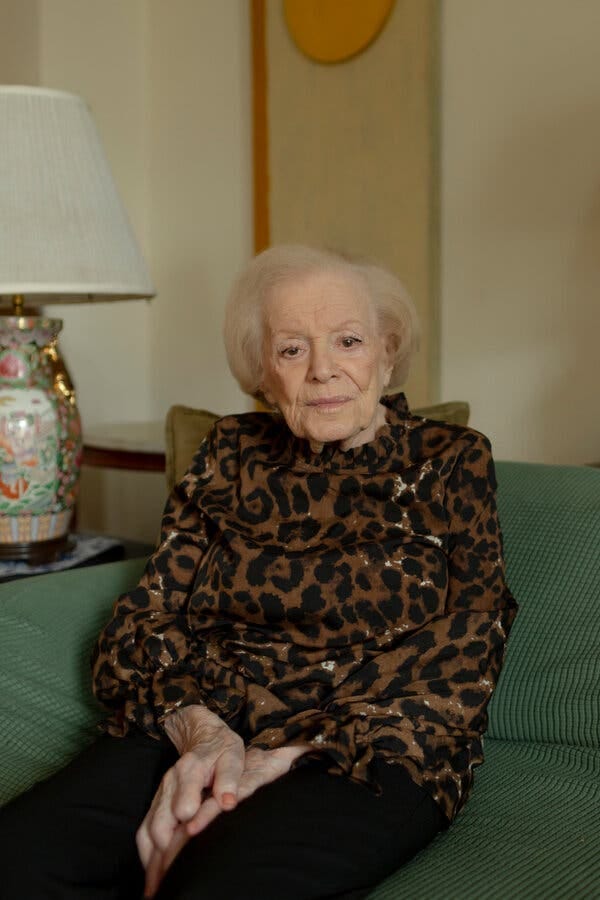This Week: Subscribe to Access All.
The Virtual Dementia Tour.
Walmart’s New Move Is a Game-Changer for Older Americans.
You Don’t Know Yourself as Well as You Think You Do.
How many years do I have left? An app gave me some helpful insights.
This senator’s comment on Medicaid cuts was brutal but accurate.
A common herb shows promise for boosting brain health and fighting Alzheimer’s.
The 100-Year-Old Psychologist Is Still Listening.
What happens when our brain goes blank?
Our Brains Are Like Pianos, With the “Sustain Pedal” Turning Certain Experiences Into Emotions: Study.
A Unique Simulation Builds Empathy by Allowing People to Experience Dementia Symptoms
NiceNews - I have known P.K. Beville for years and have keynoted her conference as well so the VDT os old hat to me. But not to you! The evidence-based Virtual Dementia Tour was designed to educate health care professionals and laypeople in the hopes of increasing sensitivity. It typically involves an eight-minute simulation that alters participants’ physical and sensory experiences, and is followed by a debrief.
Walmart’s New Move Is a Game-Changer for Older Americans
MSN - Walmart has launched a program to track Medicare Advantage benefits in real time and adds a label to eligible items in its stores, which says "benefits eligible," reports MSN. About 40 percent of Medicare Advantage enrollees forgo more than $1,600 in benefits annually, and the new labeling system could help enrollees identify which items are eligible under their plans.
For access to all articles and links, please upgrade to paid.
You Don’t Know Yourself as Well as You Think You Do
The Atlantic - The dream of perfect self-knowledge is unattainable, and chasing it too doggedly can leave you more confused and stuck than when you started.
How many years do I have left? An app gave me some helpful insights
WAPO - From the author - When a friend mentioned that he’d used a new artificial-intelligence-powered smartphone app called Death Clock to learn when his ticker would give out, I wanted to know my end date as well. I was hoping an app combining AI and statistical modeling to predict my personal life expectancy would buy me more time. It did! I am pleased to report that I won’t die until 2042, at age 84.
US dementia caregiving costs to surpass $3T by 2060, study indicates
McKnight’s - Dementia caregivers’ total unpaid economic impact is expected to exceed $3 trillion by 2060, according to a new study published in JAMA Network Open.
This senator’s comment on Medicaid cuts was brutal but accurate
WAPO - It is never a good idea for a politician to answer a question flippantly, but Sen. Joni Ernst recently did just that at a town hall in Iowa. In response to a constituent concerned that the GOP’s planned Medicaid cuts would lead to more deaths, the Iowa Republican replied, “Well, we are all going to die.” She is right. Both in the meta sense (humans are, to date, mortal) but also in the specific sense: If enacted, the House-passed reconciliation bill will mean more Americans will die — at 100,000 more over the course of the next decade.
A common herb shows promise for boosting brain health and fighting Alzheimer’s
MSN - Rosemary (Rosmarinus officinalis), the aromatic herb native to the Mediterranean, has long been treasured in kitchens around the world. But beyond its culinary charm, rosemary is also gaining recognition for its impressive health benefits, especially when it comes to brain health, inflammation and immune function.
The 100-Year-Old Psychologist Is Still Listening
NYT - At the appointed time, her patients will dial in, and the 100-year-old psychologist will pick up the phone. Increasingly hard of hearing, she presses her cordless handset tightly to her ear. She is partly blind, and can no longer rely on reading her own notes. For 45 minutes, several times a week, she listens intently to the pains and conundrums of clients who have come to depend on her counsel.
Sometime after the Covid-19 pandemic, the psychologist, Marcia Brenner, started to notice herself asking for details about her patients’ lives that she once knew so intimately. This loss of memory may be the most painful affliction she has suffered in her very long life.
What happens when our brain goes blank?
PopSci - Humans experience an empty mind up to 20 percent of the time.
Our Brains Are Like Pianos, With the “Sustain Pedal” Turning Certain Experiences Into Emotions: Study
Nice News - According to the team, experiences are sort of like piano notes being played in our brain. Some may set off short-lived bursts of activity — like short, staccato notes — which broadcast “news” of stimuli. Others trigger longer-lasting activity, similar to notes drawn out with the sustain pedal, which may lead to emotional responses.
"I am careful not to confuse excellence with perfection. Excellence, I can reach for; perfection is God's business."
- Michael J. Fox




